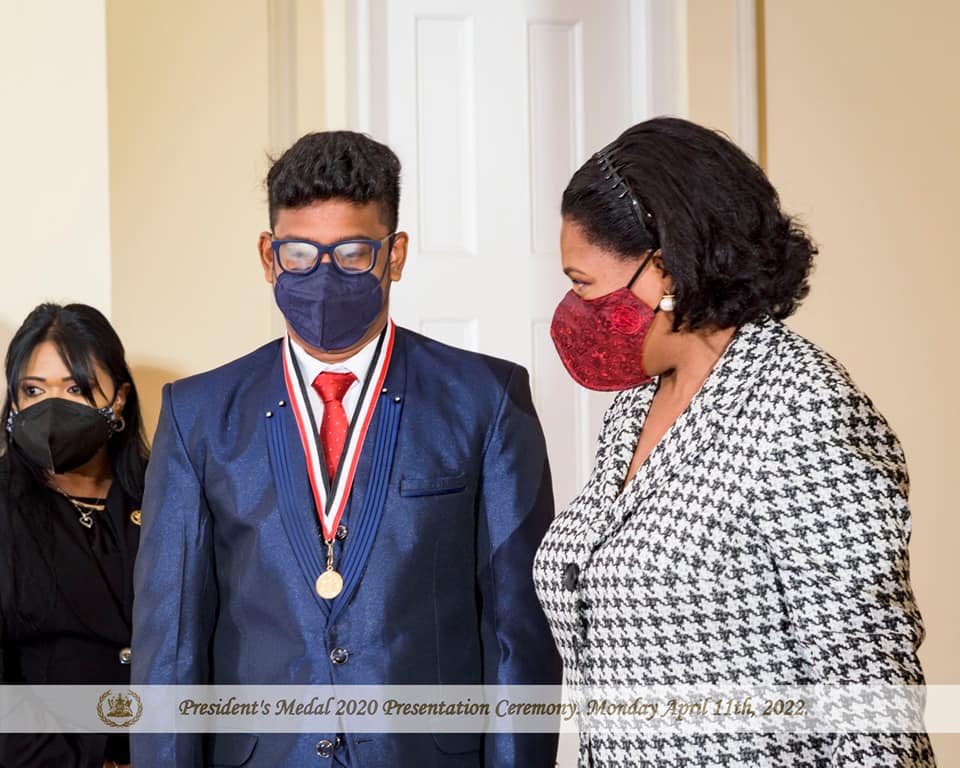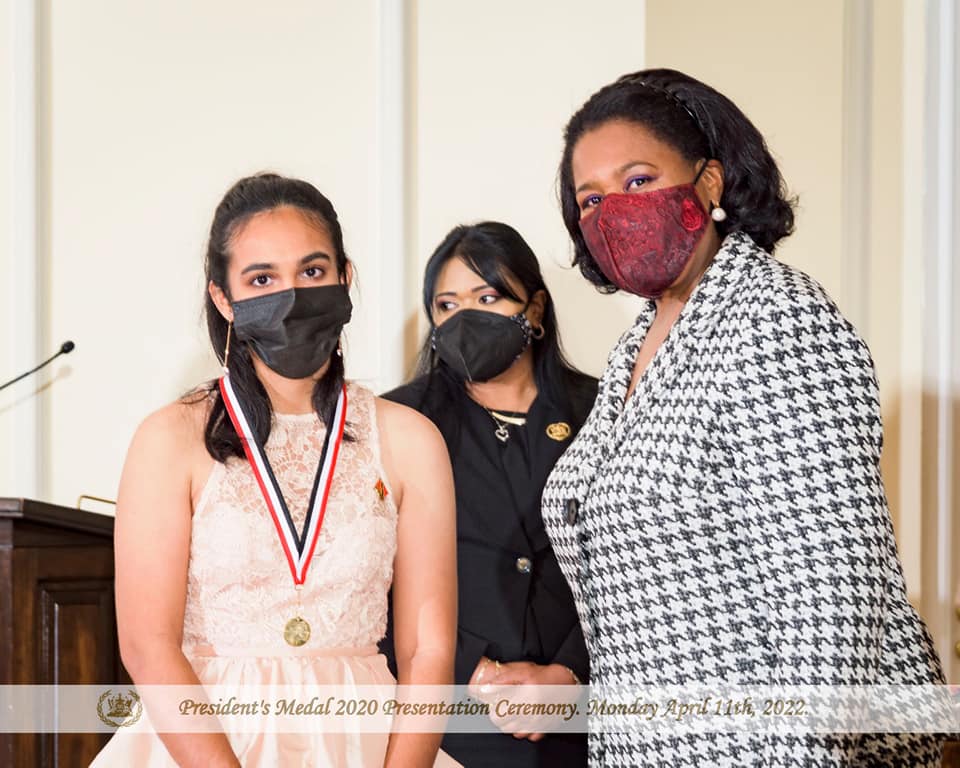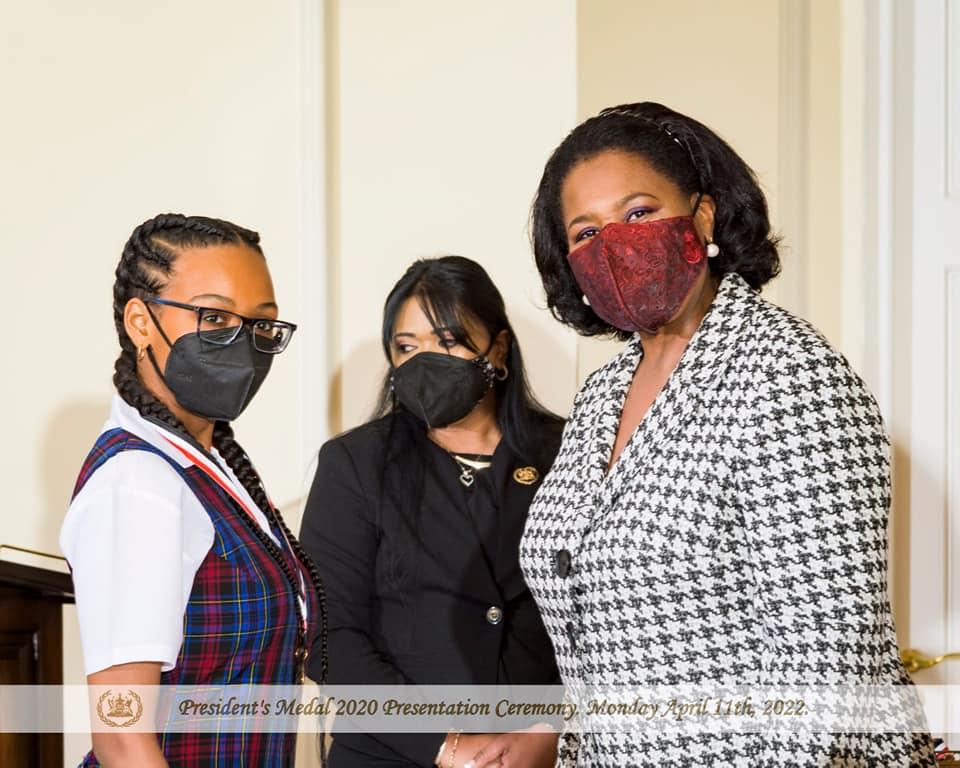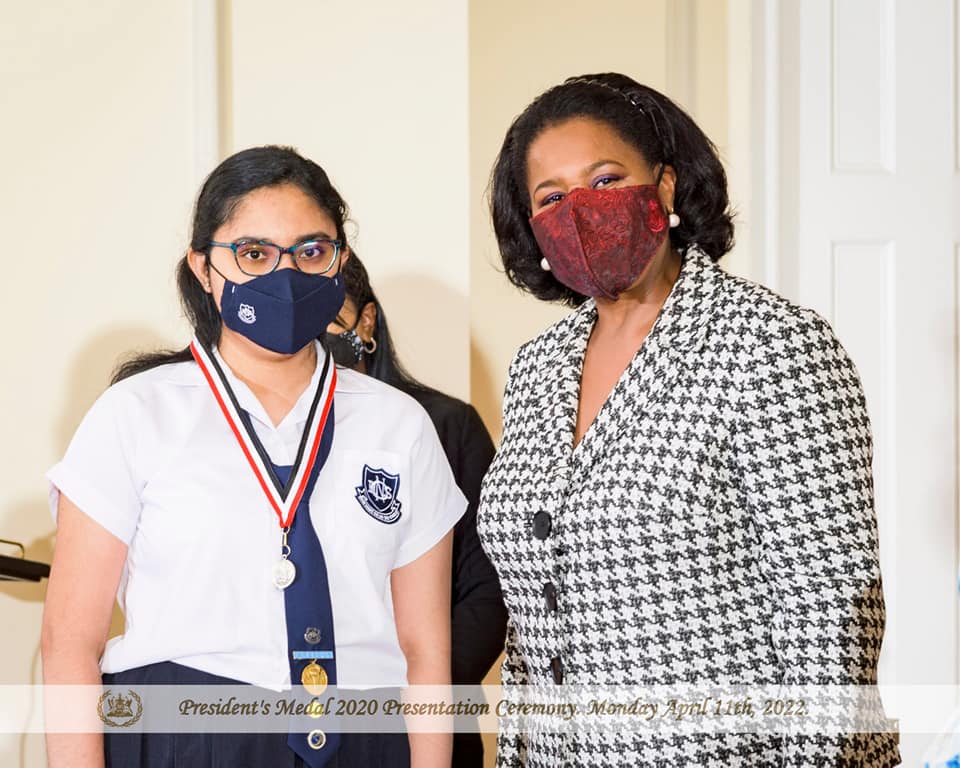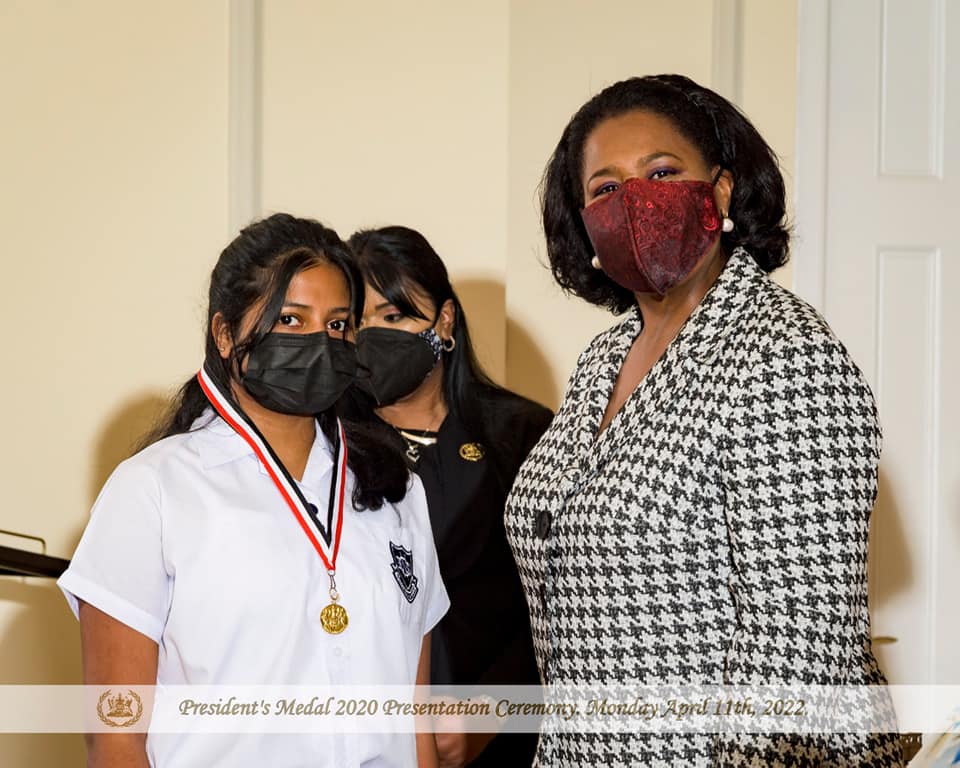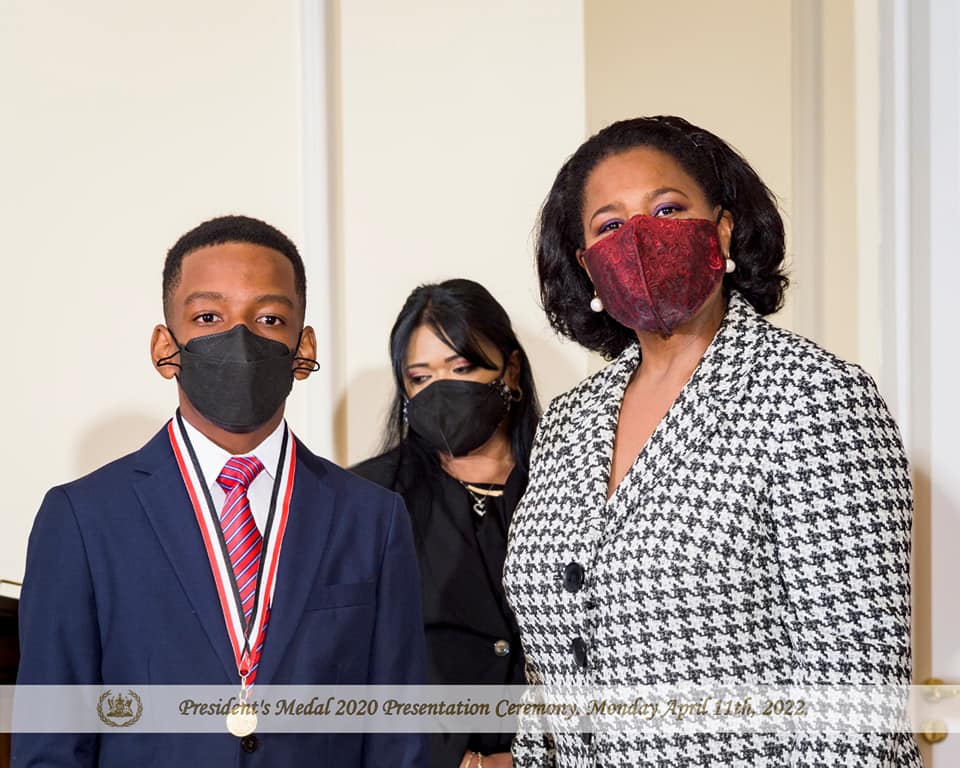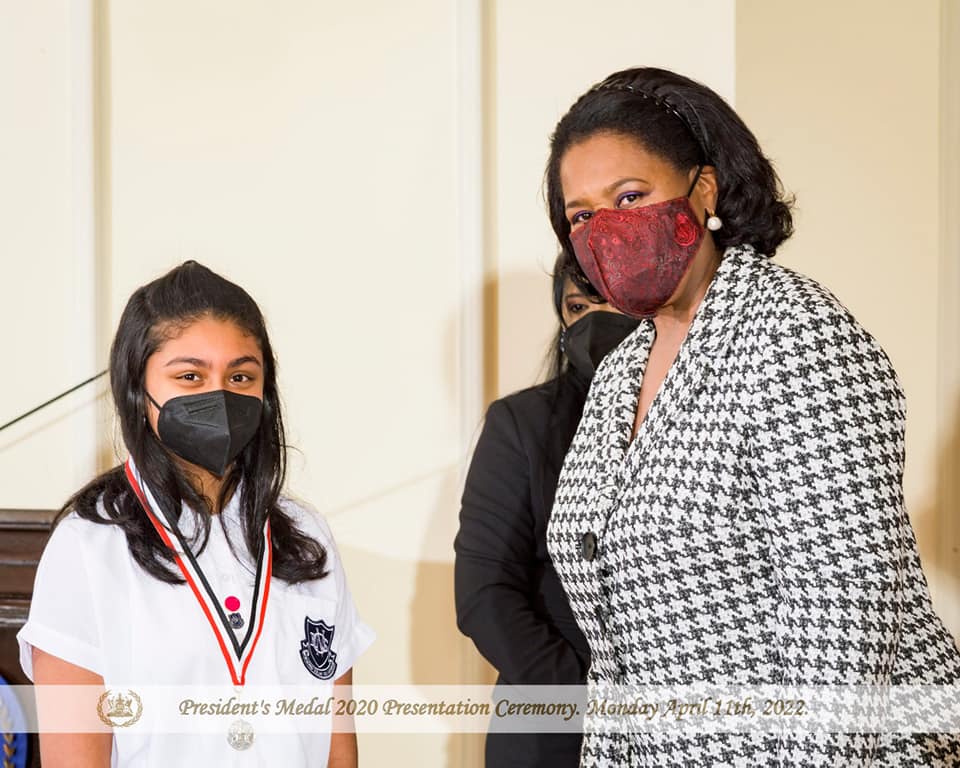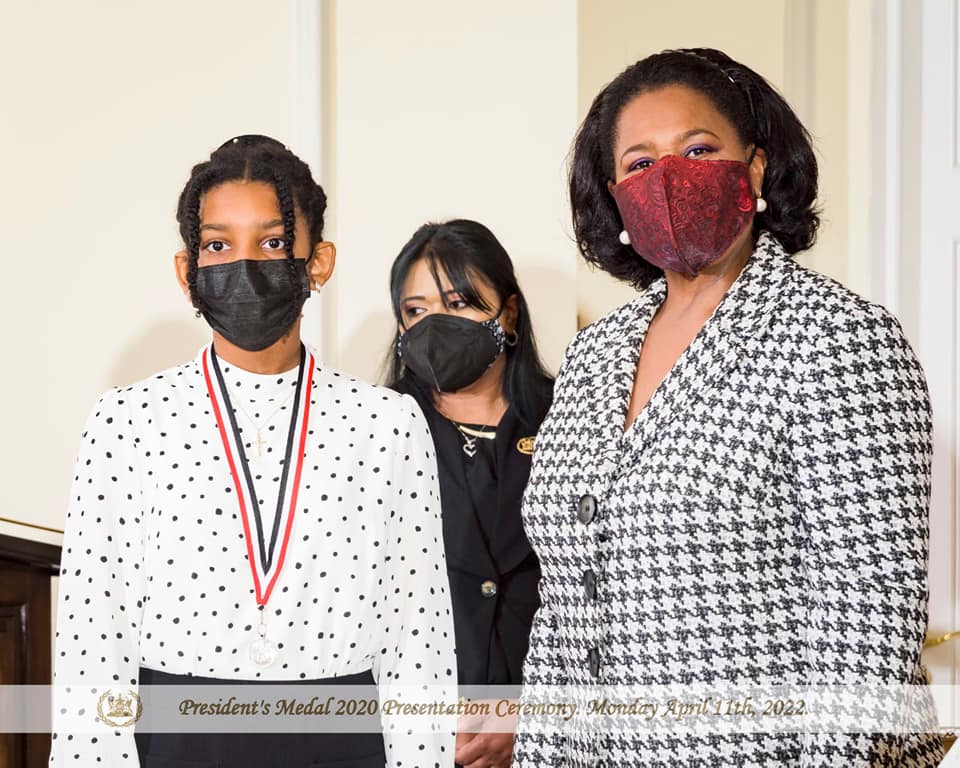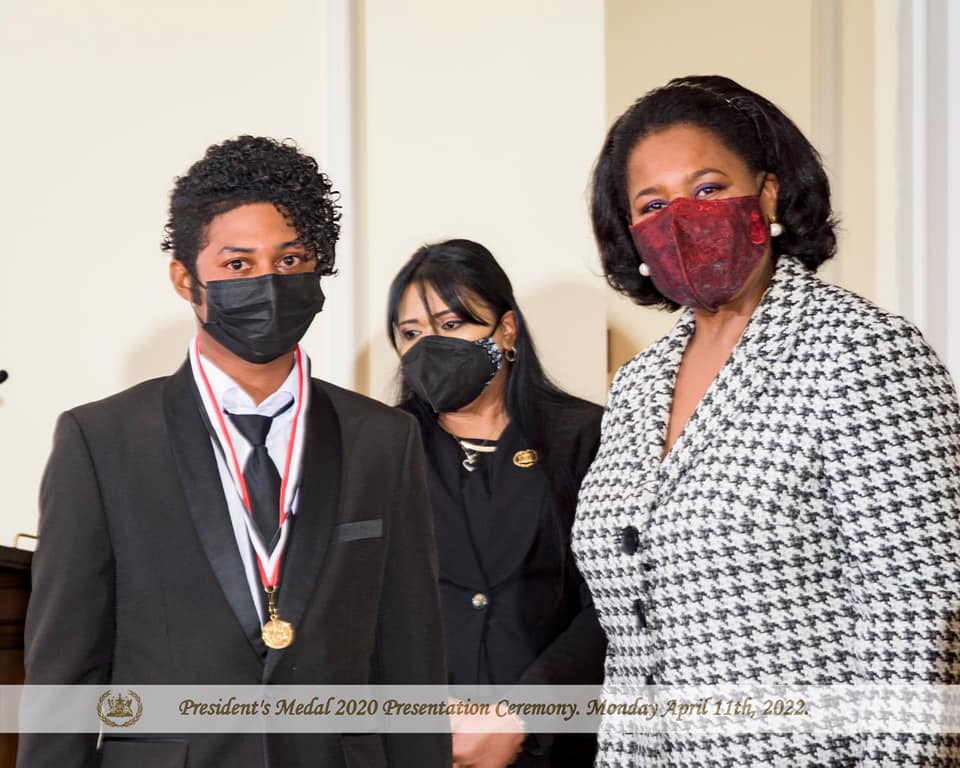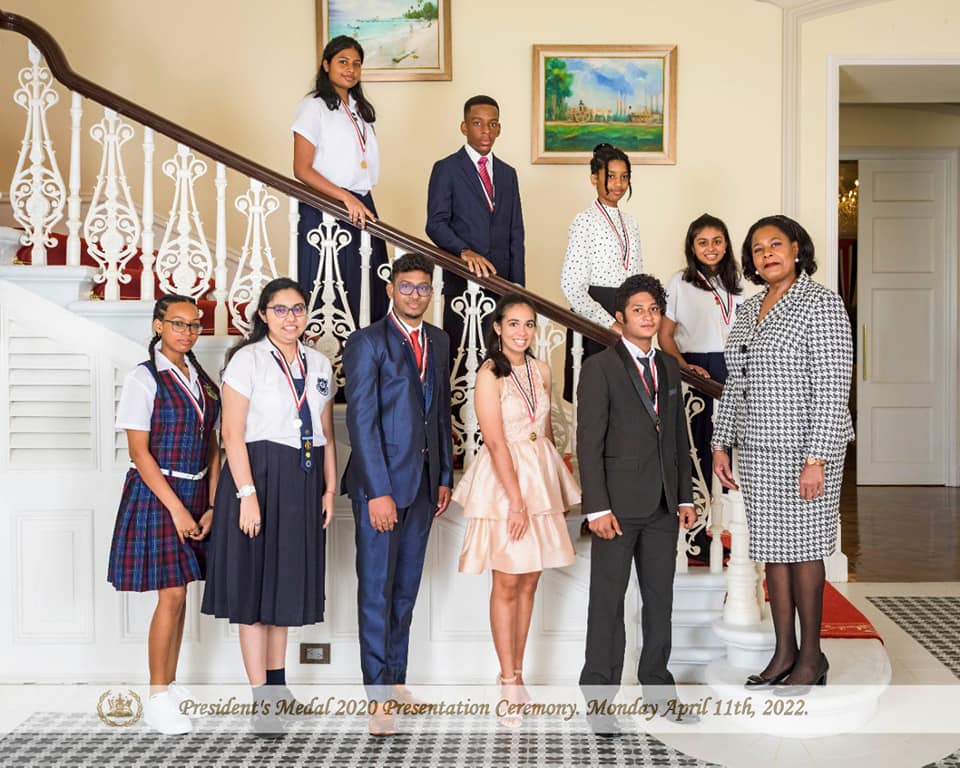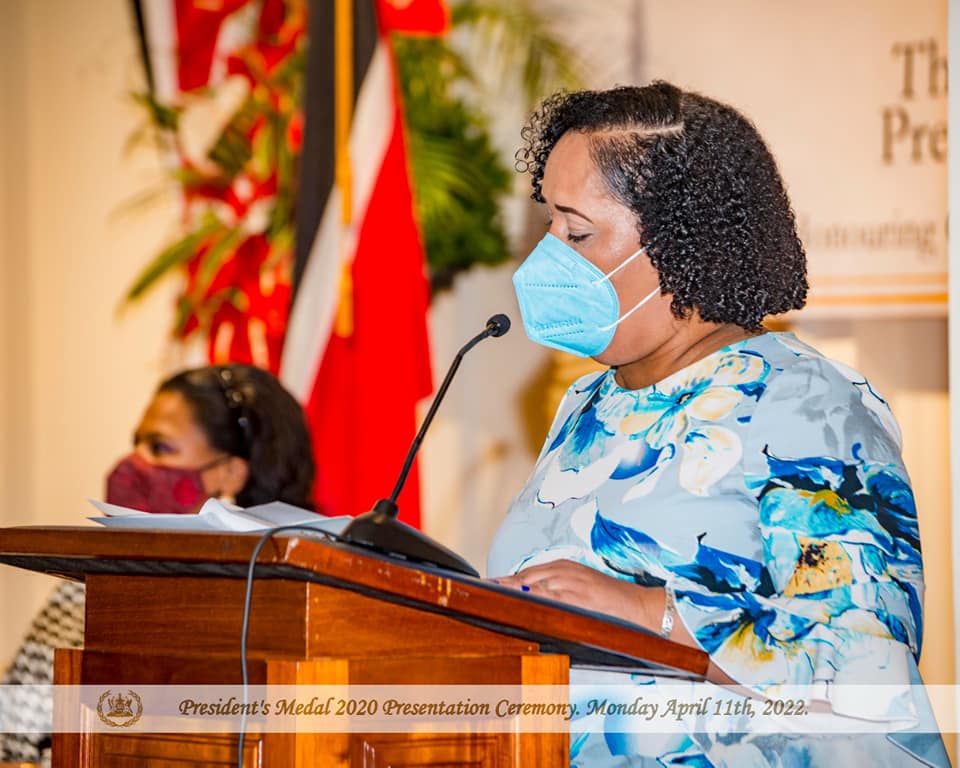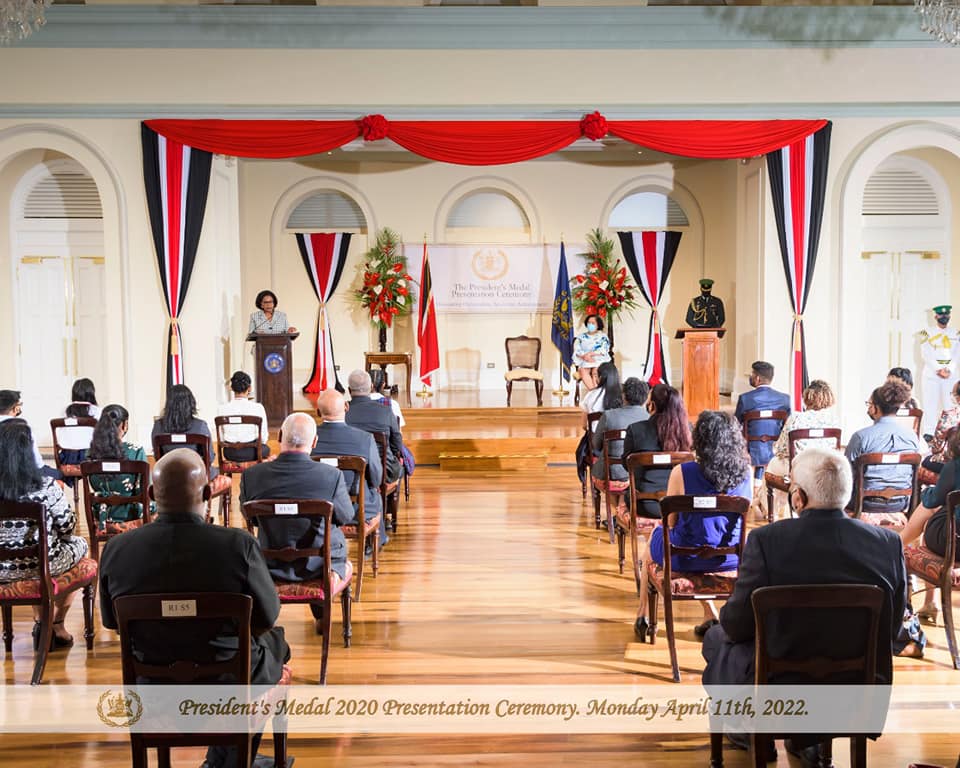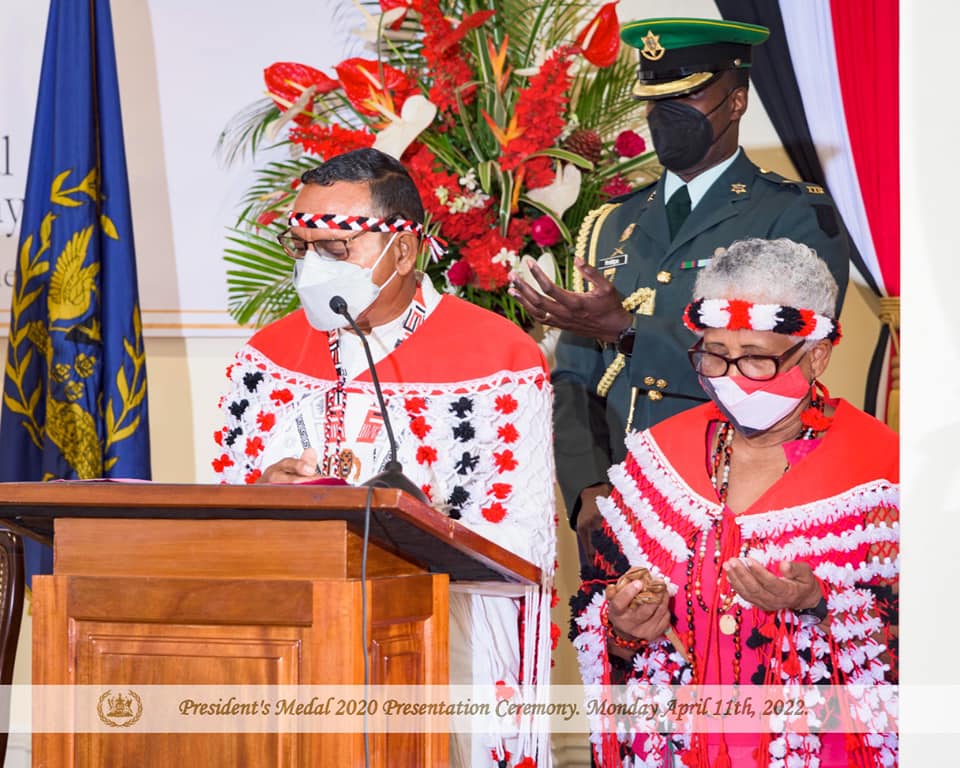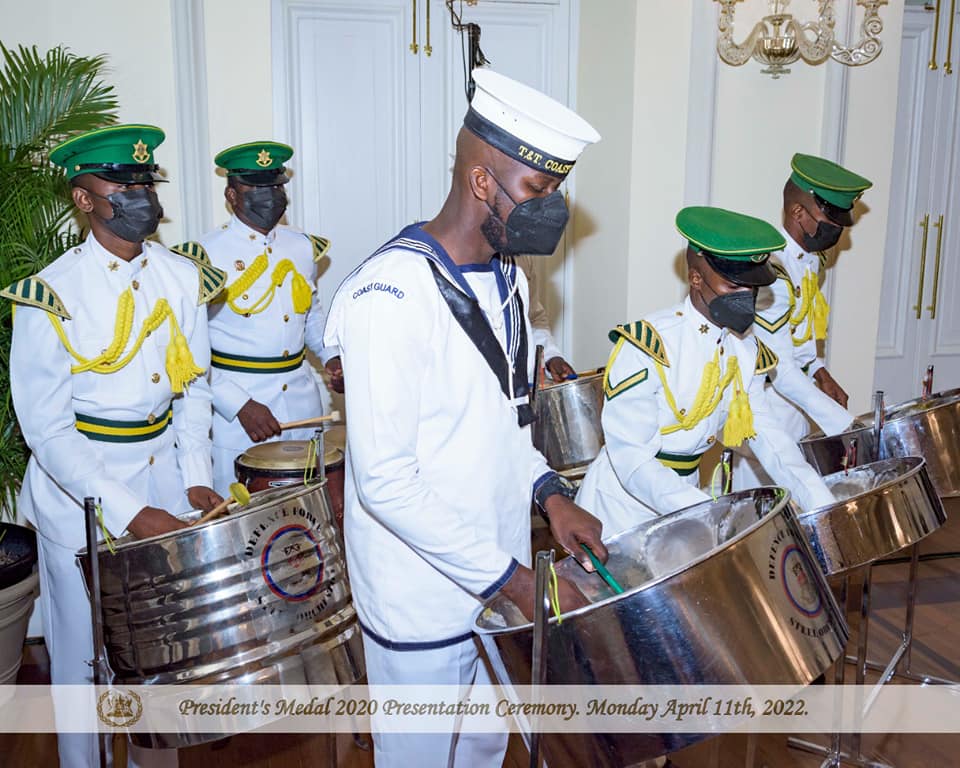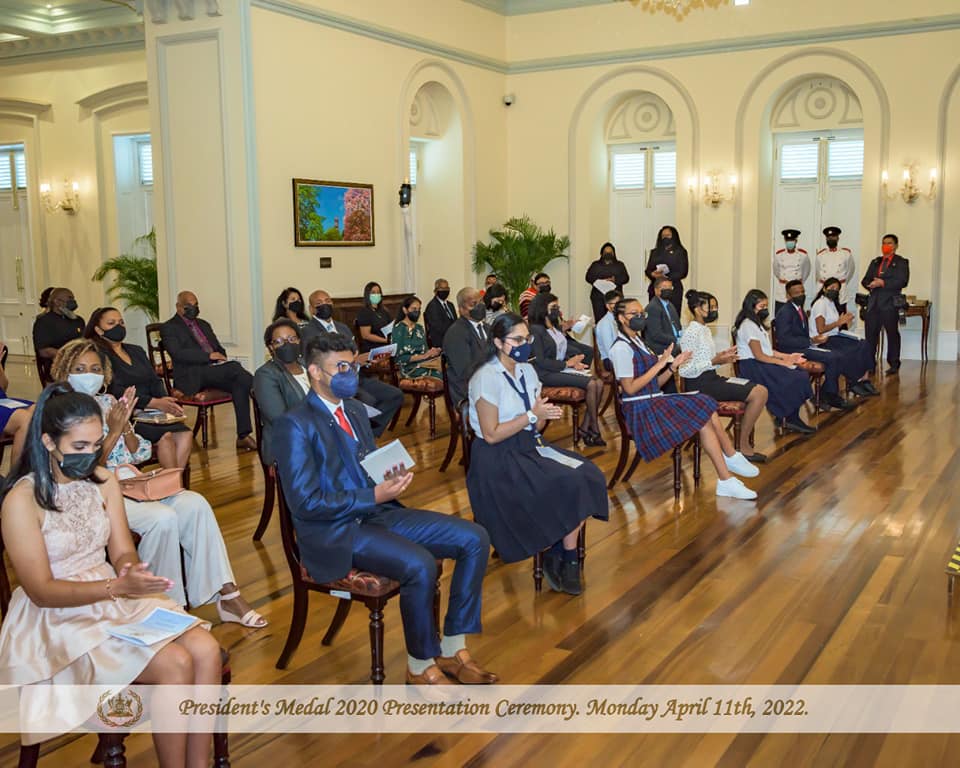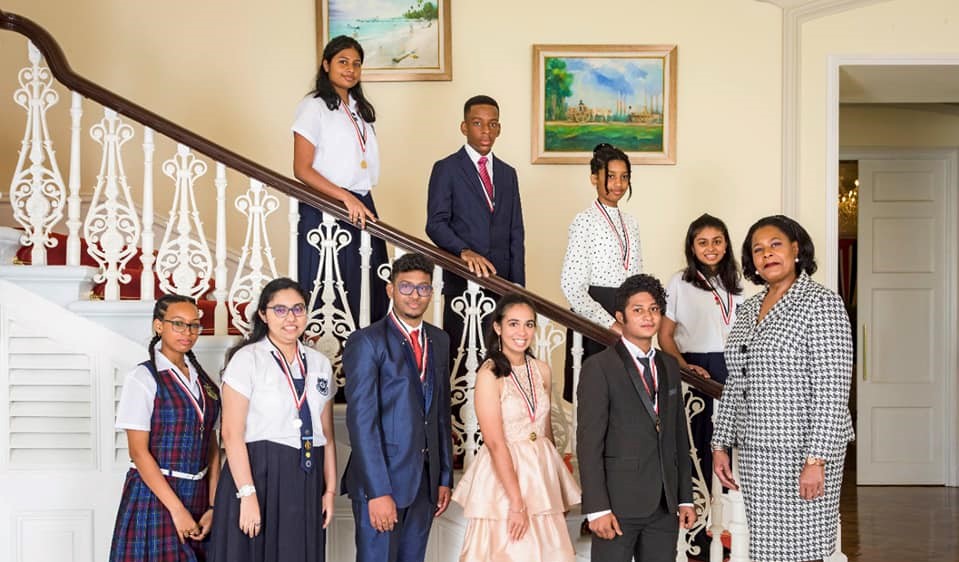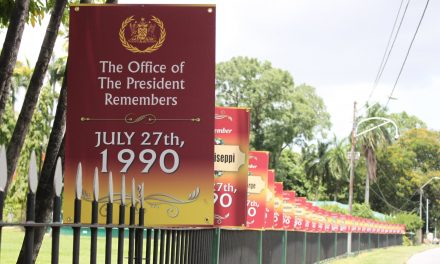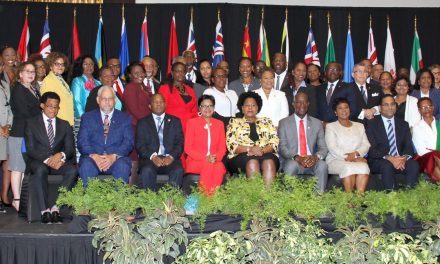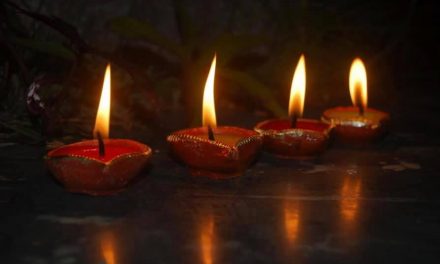“An investment in knowledge always pays the best interest.” So observed American founding father, Benjamin Franklin and I am delighted this morning to be in the company of young people who have invested wisely and realised a handsome return.
The medals that Amrit, Anjali, Maali, Anusha, Richard, Ameerah and Aaron, Anjanaa and Mercedes are receiving today represent the culmination of their hard work, sacrifice and laser focus on the goals they set themselves. I congratulate all of you heartily on achieving the pinnacle of academic success in your respective examinations. When I spoke at the 2019 President’s Medal Presentation Ceremony, I asked, “where within the academic landscape is success recognised and celebrated for the budding mechanic, electrician and designer? They are as essential to the national progress as doctors, attorneys and engineers” and so when I received the list of the 2020 President’s Medal recipients, I was particularly pleased to see that a medal had been added in the field of technical and vocational education. Richard, you have blazed a trail.
The heights scaled by these nine students are all the more spectacular given the circumstances that presented themselves in the thick of their preparation for exams, and just as they were about to peak. Competition for the top spots, usually fierce, grew even more intense due to the reduction in the number of scholarships up for grabs, but that paled in comparison to the discombobulating blow dealt by Covid-19.
In March 2020 the pandemic struck, upending the ordinary course of things—all that was predictable, orderly and normal. I could only imagine the effect that this disruption had on the cohort of students about to write critical exams which, while not determining their future, certainly would have some effect on it. The sheer uncertainty of what would happen next, and when, had the potential to throw students off their stride and no doubt, for many, it did. I take this opportunity to applaud the entire body of students who braved examinations in 2020. Those of you who are being honoured today are among those who, despite the distractions and upheaval, were able to focus, stay the course and excel, perhaps beyond your wildest dreams.
Your medals of gold and silver are surely testament to your nerves of steel and as we speak of nerves, let’s not forget your parents and teachers. They may not have shown it as they supported, comforted and guided you through the stormy waters, even while experiencing their own challenges, but I feel sure that they had their moments of anxiety on your behalf. Concerned aunties, grandads, neighbours and siblings joined the chorus—encouraging you to keep at your studies despite the changes and confusion, consoling you when exam dates and formats were modified and cheering you on as you ran the final stretch. I include all of these supporters in my congratulations even though they get no medals this morning.
As we celebrate academic achievement and excellence today, we must be mindful that that is only one part of a successful life. Martin Luther King Jr shared his wisdom when he said, “Intelligence plus character—that is the goal of true education.” The testing of the complementary factors is not to be found on any examination paper. All-A profiles, raw scores and percentage points, do not tell us whether empathy, selflessness, consideration, and respect have been learned and whether students can be awarded a passing grade.
A teacher’s foremost responsibility is the delivery of curricula, imparting the information that their charges must grasp to pass a particular examination. The onus for character building, ensuring that children develop emotional intelligence, core values and salutary principles, lies with parents. We depend on them to teach, model and reinforce those traits that enable their children to be well-balanced, unselfish and contributing members of society. These two groups of adults who, in combination, are most impactful on the lives of children must of course play a supporting role to each other so that children come to understand and live a life that is seamless and consistent in its principles.
I have been wondering whether our schools might by way of formal curricula intentionally teach social skills, for example empathy, respect for office and graciousness. I was recently reading results of research conducted by Yale University which states that, “higher levels of empathy make people more productive in cooperative learning and work environments, and empathy education has even been proven to boost traditional academic success as well. Future leaders in business, politics, art, and beyond will need emotional intelligence to participate meaningfully and relate to others in an increasingly complex world.”
My musings on this subject were not idle ones, but rather provoked by a rather terse email to my office from a young scholar in January this year. The writer complained of feeling disregarded because it had been over nine months since awardees had been announced, but no further communication had been forthcoming. Now, one could well understand the impatience and impulsiveness of youth. What gave me pause was that the author, showing clear understanding of the process, that this office had to await notification from the Ministry of Education, urged us to follow up with the Ministry and now, here comes the kicker—and I quote, “or else I would be forced to go to the media about the treatment I have received.” My reaction to this closing salvo is perhaps best captured by the text abbreviation SMH. I thought, “Why that tone?” Why did the writer consider it appropriate to include the ominous ‘or else’? Where did the writer learn that such an approach was acceptable?
The Office of the President and I personally, regularly receive letters from individuals, activists, and politicians which question, criticise, disagree with and challenge our decisions, policy positions and statements. It is always interesting to study how the writers express themselves. I confess that one of my favourites is activist Dr. Wayne Kublalsingh, who is never afraid to take a position. In a recent letter, his subject heading was “a request to explain the reason for…” followed by a polite enquiry as to my wellbeing. Having set out his concerns, which took issue with one of my decisions, he afforded me the opportunity to provide an explanation and he gave the impression that he would be willing to consider the response. He went on to say that if my answer was not satisfactory to address his concerns, he would have to take legal action. On receipt of our response, he thanked us for its promptitude, said that my views and positions were noted and that the body he represented would seek further information from other sources before deciding on an appropriate course of action. Dr. Kublalsingh could conduct a master class in respect for and communication with a public office.
While we must attempt to produce assertive, confident students, not afraid to question the status quo or speak truth to power, should we not also be raising temperate and tolerant young persons who when faced with disappointment, challenges or frustration, real or perceived, rather than descend to bullying, manipulation or intimidation, rise to treat individuals and offices with due regard, even as they fearlessly pursue a justifiable cause. I leave these matters for your consideration at a later time.
Ameerah and Aaron, Anjanaa and Mercedes, you made the transition to secondary school virtually—that must have been a strange experience! I hope that when you were finally in February this year able to meet your classmates and teachers in person and explore the halls of your new schools, the experience lived up to or even surpassed your expectations. That socialisation and interaction with your peers is a critical part of your schooling, as it teaches you to play well with others and operate as part of a team. I encourage you, while you continue to give pride of place to your schoolwork, take the opportunity to participate in and enjoy all your new school has to offer including sports and extra-curricular activities. I wish you all the best, particularly as you return to school full time in the Third Term.
Maali and Anusha, you are on the final leg of your secondary schooling, approaching your CAPE exams, happily, knock-on-wood, without the drama of two years ago. That is not to say that there may not be distractions and disappointments, but your having been tested by and besting this pernicious pandemic, I have every confidence that you will not be deterred from achieving your goals.
Amrit, Anjali and Richard, whether you have gone on to further studies or entered the world of work, you have left behind the controlled environment of school and are making your way through the ups and downs of early adulthood. You must now navigate the many situations that present themselves in everyday life drawing upon and synthesising the whole of your education to date to find your spot in the sun. Apply those study skills that have served you well in your scholarship to life in general. Press on with confidence, optimism and resolve. I express the sentiments of the nation when I say, we are proud of all of you and wish you every success in the future.
I leave you with the words of Indian philosopher and spiritual leader Jiddu Krishnamurti:
“There is no end to education. It is not that you read a book, pass an examination, and finish with education. The whole of life, from the moment you are born to the moment you die, is a process of learning.”
Learn on and I wish you all the best.
